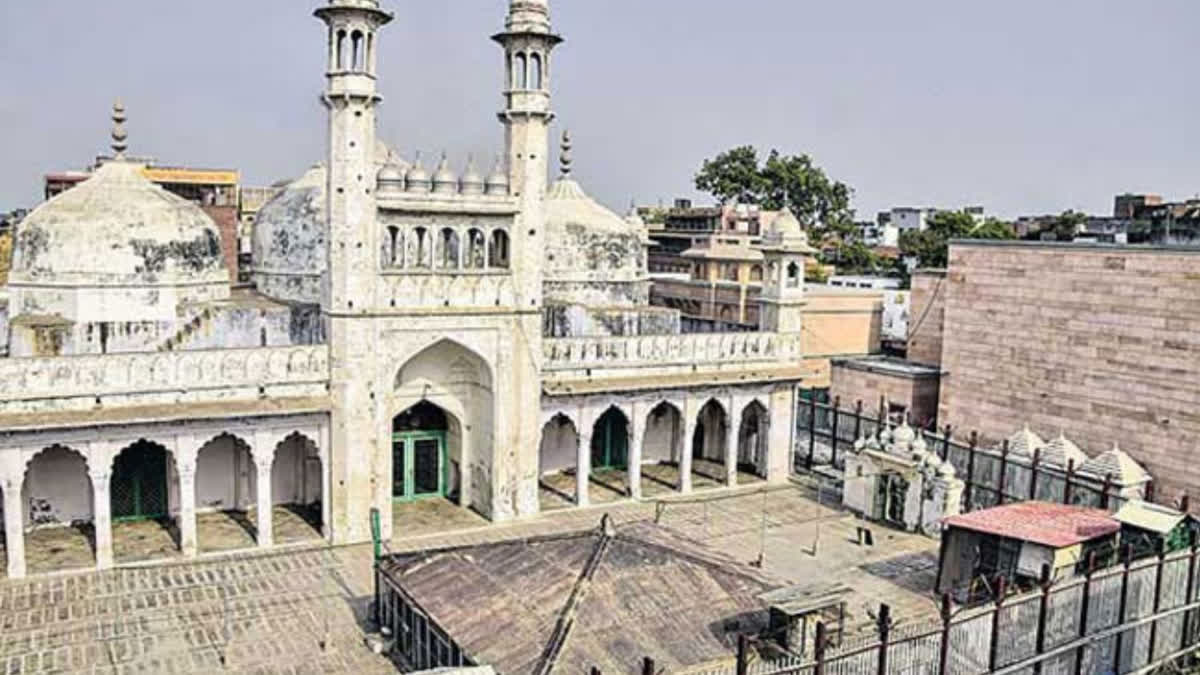New Delhi: The ongoing dispute over Varanasi's Gyanvapi mosque took a new turn as the Allahabad High Court announced that no survey will be conducted until August 3rd, when the final order on the matter will be issued. The court's decision came after extensive arguments regarding the demand for a survey by the Archaeological Survey of India (ASI), which has been requested by Hindu petitioners claiming that the mosque stands on the ruins of an ancient temple.
“Verdict to be pronounced on August 3. Interim Order to continue till August 3,” Hindu side lawyer of the Gyanvapi mosque case Vishnu Shankar Jain told the reporters here.
Representing the Hindu petitioners, a lawyer emphasized the necessity of the ASI survey, pointing out that the Anjuman Masjid has contended that the alleged temple structure is merely a product of imagination and not grounded in reality. They argued that the mosque has always been under the possession of Muslims since its establishment. Another petitioner presented research work by Neil G, spanning from 1975 to 1990, along with photographs showing the disputed structure.
Also Read: ASI stops scientific survey of Varanasi Gyanvapi mosque complex after SC orders stay
While the court acknowledged the presented evidence, it deemed a decision on the basis of evidence would be premature at this stage. However, the lawyer argued that the survey is crucial for the main suit, which seeks permission to conduct daily religious rituals (puja) at the site. They cited a previous ruling by the Allahabad High Court that allowed devotees to perform puja on one occasion, questioning how a daily or weekly practice could alter the mosque's character. Thus, they asserted that a survey is required for the disposal of the main suit.
In a related development, on July 24, the top court had temporarily halted a detailed scientific survey by the ASI until 5 pm on July 26. This survey aimed to determine whether the mosque, situated next to the Kashi Vishwanath temple in Varanasi, was constructed on the site of a pre-existing temple. Subsequently, the mosque committee approached the top court with an interim plea requesting a stay on the ASI's work.
The origins of the controversy trace back to July 21 when Varanasi district judge AK Vishvesha ordered the ASI survey of the Gyanvapi complex based on an application filed by four Hindu women on May 16, 2023. Notably, the district judge's order excluded the ablution pond area of the complex, which had already been sealed by the top court's directive.
This dispute has seen previous legal manoeuvres as well. On May 12 of the same year, the Allahabad High Court had granted permission for the scientific survey of a purported "shivling" (a representation of Lord Shiva) in the mosque. However, the top court intervened and stayed this order on May 19. During the initial survey, a structure claimed to be a "Shivling" by the Hindu side and a "fountain" by the Muslim side was discovered within the mosque premises. This survey was carried out as per a court mandate to investigate the site in light of its proximity to the Kashi Vishwanath temple.
Before the May 12 ruling, the High Court had also set aside the Varanasi District judge's previous order, which had rejected the application for a scientific survey and carbon dating of the "Shivling" on October 14, 2022. In response, the High Court directed the Varanasi District judge to proceed with the application by Hindu worshippers for a scientific probe of the "Shivling." The petitioners, led by Laxmi Devi and three others, had filed this plea in the High Court, challenging the lower court's order.



